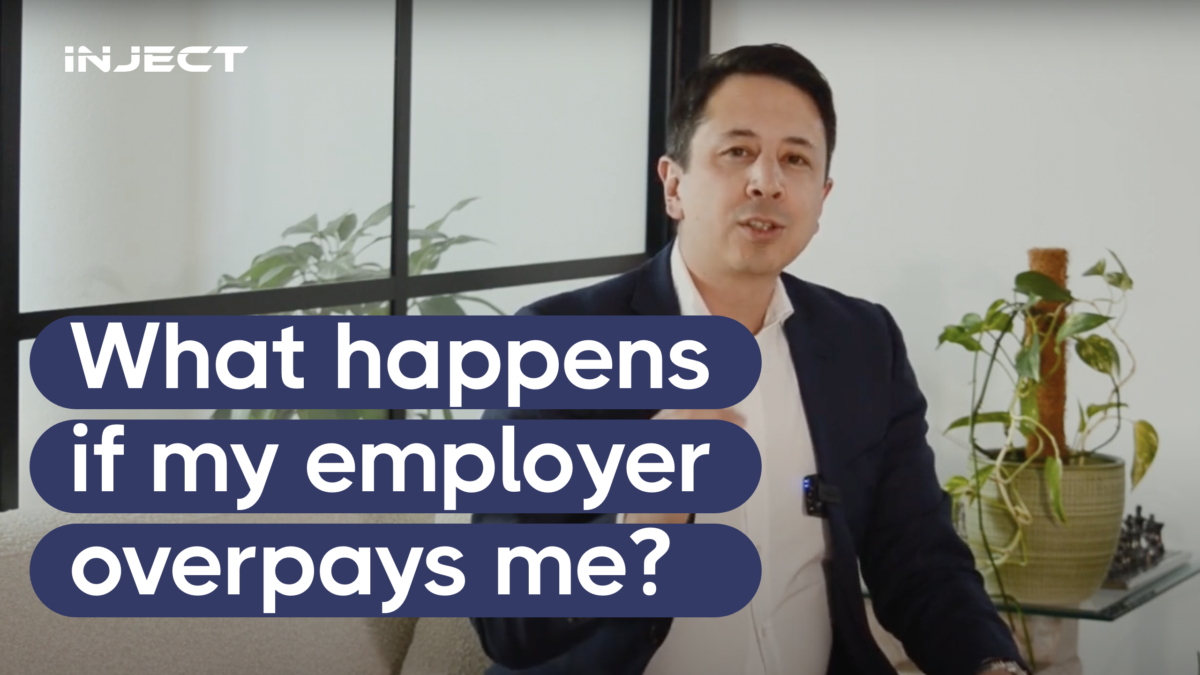This blog is a direct transcription of our Youtube video: How To Write Emails Professionally – My Golden Rules And A Fail-Proof Structure To Help You Succeed
One of the things that you’re going to have to do when you start a job is to write emails. Now no one ever tells you how to write good emails and you can pick up some really bad habits. So we’re going to go through how to structure an email and the 10 golden rules for writing effective emails, so stay tuned.
There are many apps that are out there designed to get rid of emails. The thing about it is they’ve failed, emails are still there, and people use them every day. So we’re going to go through the dos and don’ts of writing good emails so that you can be effective in your job.
How to structure your emails to communicate effectively – I’m going to give you a four-point structure for how to write emails so it’s easy to remember.
First point. The first sentence should convey exactly what this email is about. If people don’t know what this email is trying to communicate by reading that first sentence, then it’s not working.
The second point is, that you should write a couple of paragraphs of information. Maybe less which could convey the main points of the email.
Third point. The last sentence or last few dot points should next steps or key questions you want them to answer.
Fourth point. If you have further detail, it should be an attachment rather than making a really long email. Just a tip, you should attach the file before writing the email because many people forget to actually attach the document and then send the email referring to an attachment. Now some email tools remind you of that, but some don’t. So best have the practice to put it in there first.
My 10 Golden Rules for Email Writing:
Write out your feelings in a draft email.
The first one is when you feel emotion, anger, or upset and you want to write someone an email, here’s what you do.
Don’t put anything in the two sections and just write the email, just write how you’re feeling, I’m angry, I’m upset, and you did this, and you did that, and all those sorts of things. Now put that email to one side, don’t send it. Go to sleep, wake up the next day, get that email out and read it out loud to yourself. If you still think it’s a good idea to send it, then maybe do that. Most likely it’s not a good idea and you won’t send it. The best thing to do is have a conversation with that person when you’ve cooled down.
Don’t send an email to a group, asking “someone” to take action.
So my second golden rule and I really like this one, is don’t send an email to a group of people asking someone to help with something. It’s going to result in a group thing and no one going to do anything most likely or if they do, it’s a bonus. If you get disappointed and upset and nobody takes action, that’s just because you’ve just sent it out into the world. If you want someone to do something, send it to one person and say, can you please help with this? If you need multiple people to help, put in a little bit more effort and send that same email to different people and say, I’m looking for some assistance. That way, that person knows you’re asking them specifically and you’re not going to be as disappointed as if you send it to a group.
Don’t reply to emotional emails.
So my third golden rule relates to the first golden rule in case someone has sent you that emotional email. Now the first thing does not reply to that email whatever they’ve said. Pick up the phone, go see them, organize a meeting, and engage in a conversation. Otherwise, you end up with this angry email tennis that doesn’t result in anything except for a bad relationship.
Have different ways of wishing someone well.
Okay, now the fourth golden rule and I know this is hard because people can get tired. But when you hope that someone’s going well in that first sentence, try and mix it up a little bit, try and personalize it otherwise it can come across as though it’s just this sentence that you’re writing before you get into the main email.
Explain the purpose of the email you’ve forwarded.
Rule number five is when you’re forwarding an email, don’t just flick it across to the other person, expect them to work out why you’re brought into them. Write what the purpose is affording it to them and what they need to do. And one important tip, check through the email chain to make sure there’s nothing confidential or sensitive in there that’s going to cause trouble.
Number your questions.
So rule number six is if you have questions that you want people to respond in, don’t scatter them throughout the email so they need to actually try and find them when they’re going to respond to you. Have them in point form towards the end or even better, have them numbered. That makes it really easy to make sure they cover everything.
When asking, do not give a directive.
Rule number seven, Now this one’s a little bit subtle and some people may not quite get this to begin with. When you’re asking somebody for something, It’s best to not give them a directive as in please do this by this, especially if they’re more senior. It’s good to subtly let them know that hey, if you can please get me this by this date then that would be fantastic. What that is that’s presenting information that you want that’s that done without actually directing them.
Follow up after sending an email.
Okay, rule number eight and I bet your manager is going to like this one. If you send somebody an email asking for something, you can’t just say your job is done and walk away. It’s possible they haven’t read the email, It’s possible they’ve forgotten about it and they’re not going to take action. Your job is to follow up and make sure that they’ve got it, they understood it, and they actually will respond to you on the action that you need them to take.
Give people time to read your email, before following up.
Rule number nine, and this is something that really frustrates other people, Is if you send an email to someone, don’t call up or go up and say, I just sent you an email have you read it? That creates a whole lot of angst for other people. Give them some time to look at it first if you’re going to send them an email rather than following them up on the spot.
Spell a person’s name and company correctly.
Rule number ten is to spell the person’s name and company correctly. Don’t misspell the company name, especially to the company owner. This just shows that you don’t care and don’t have attention to detail and then brings down all the other great things that you’re trying to do.
Final Thoughts
Okay, so those are the 10 golden rules for writing emails. Just one bonus rule and this is a catch-all rule.
Never send anything that you would not want to be blown up to poster size.
If you’re not comfortable with someone printing off that email, blowing it up on a poster, and showing it to everybody, don’t put it in an email. Because there’s every chance that gets shown to other people and you don’t want to be red-faced for that.


